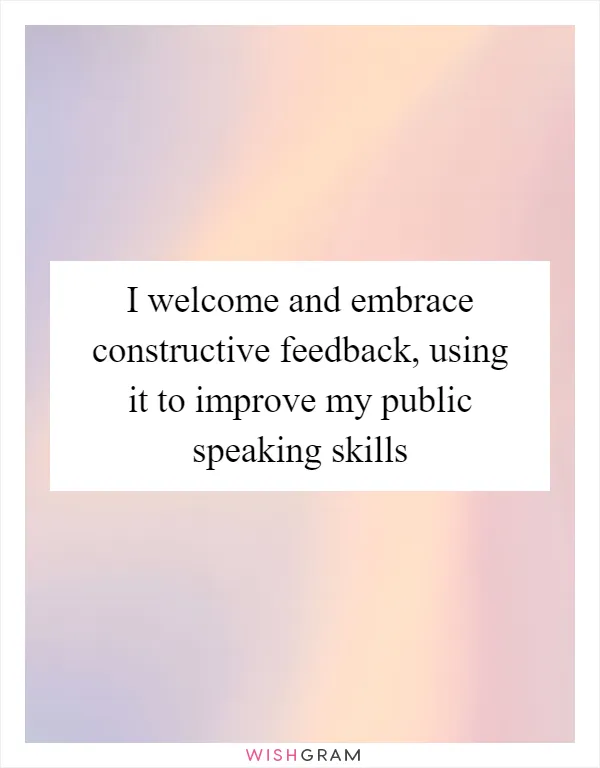I welcome and embrace constructive feedback, using it to improve my public speaking skills
The affirmation "I welcome and embrace constructive feedback, using it to improve my public speaking skills" can help you become a better public speaker. When you are open to feedback, you are able to learn from your mistakes and improve your skills. This can help you become more confident and effective in your public speaking.
One of the most important things to remember when receiving feedback is to remain open-minded. It can be difficult to hear criticism, but it is important to remember that it is not a personal attack. Instead, it is an opportunity to learn and grow. When you are open to feedback, you can use it to identify areas where you need to improve and work on them.
Another important aspect of receiving feedback is to be specific in your requests. When you ask for feedback, be clear about what you want to know. This can help you get more targeted feedback that is relevant to your specific needs. For example, if you are struggling with your body language, you can ask for feedback specifically on that aspect of your public speaking.
It is also important to remember that feedback is not always negative. Positive feedback can be just as valuable as constructive criticism. When you receive positive feedback, it can help you identify what you are doing well and build on those strengths. This can help you become even more effective in your public speaking.
When you receive feedback, it is important to take action on it. This means using the feedback to make changes and improve your skills. This can be challenging, but it is important to remember that practice makes perfect. The more you practice, the better you will become.
